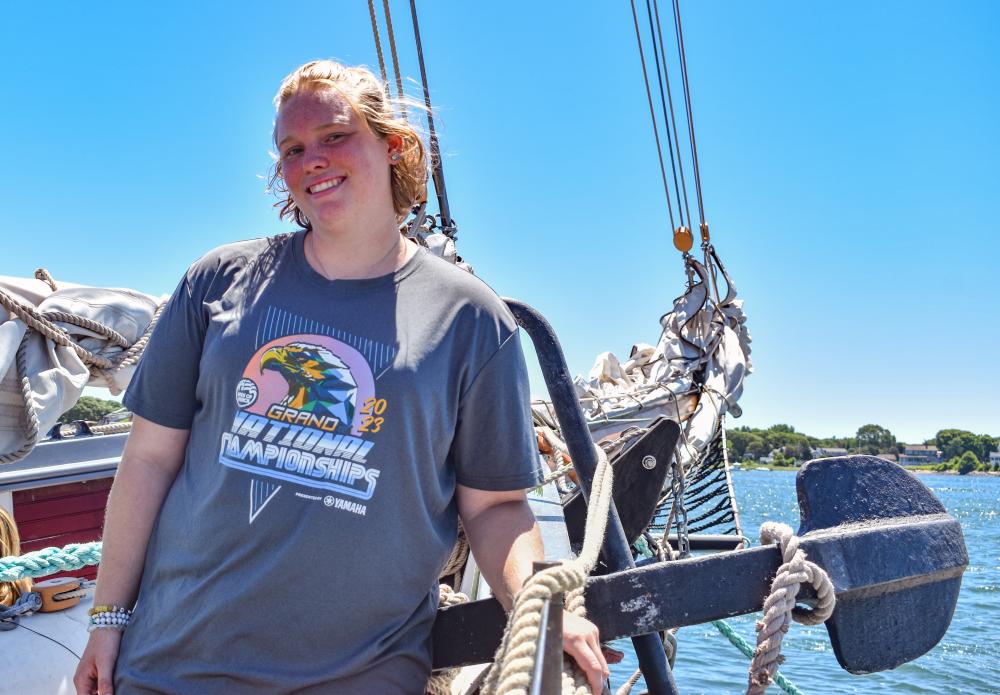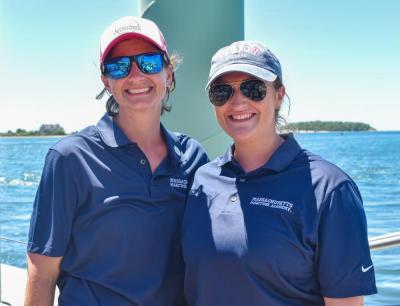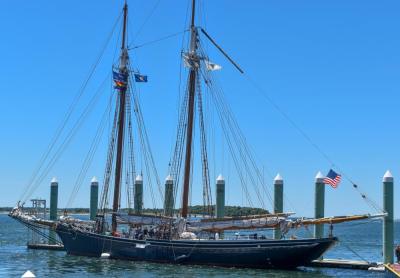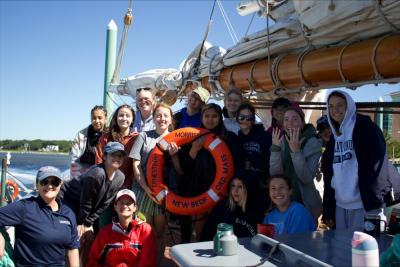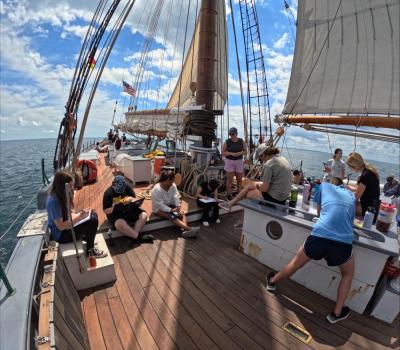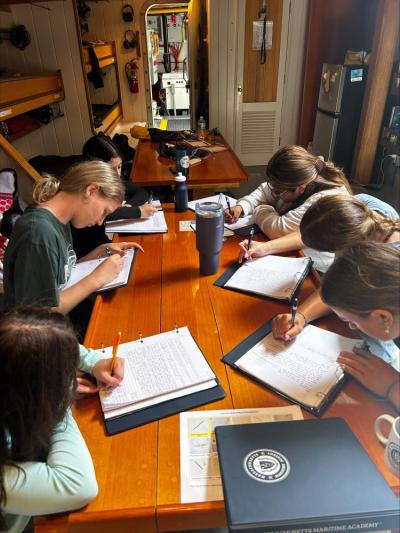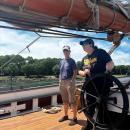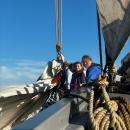Anchored in knowledge: Students return from schooner STEAM program
BOURNE — In the middle of Buzzards Bay in the pitch black of night, students aboard the Ernestina-Morrissey studied the constellations, learning about the North Star, as they sat still in the water.
“It was really something out of a fantasy or a movie,” said Aerro Gove, a junior at Dartmouth High School, adding how rare it is to get such an unobstructed view with so little light pollution.
Gove was one of 16 high school students to be a part of Mass Maritime’s pilot program “Women in STEAM: An Ernestina-Morrissey Experience” for four days and three nights.
Docking back in Bourne Friday, June 28, the students were excited to share all they had learned and experienced over the last week with their families.
Gove said she joined the program because of her interest in STEAM, which is Science Technology Engineering Art and Mathematics, and felt it was an “out of the box” way to get some hands-on experience.
Students had the opportunity to study water samples under microscopes, learn about water chemistry, explore light in seawater and more.
In addition to learning about science, students learned more about the history of the boat which was built in the late 1800s and worked on their interviewing skills to get to know the crew and how the ship runs.
Gove said she liked learning more about how boating has changed the crews’ lives and with an interest in veterinary medicine, she was overjoyed at the opportunity to see various sea creatures during the trip, including harbor seals, dolphins and whales.
Along with learning, students also had the opportunity to participate in watches.
Tiffany Krihwan, who has served as the schooner’s captain for three and half years, said watches were divided among crew and trainees, working in shifts. Some of the watch responsibilities consisted of steering the boat, checking all around for debris and other vessel traffic and gathering statistics on the engine.
This was the first overnight program the schooner had since around 2003, Krihwan said, adding how the ship just finished undergoing restoration work.
“I thought it went really well,” she said. “Mother Nature threw everything at us that she could have — thunderstorms, high winds, no winds, lot of heat, no heat,” but just before sunset Thursday evening, everyone aboard had the opportunity to see whales.
Gove said the biggest challenges for her aboard the schooner were getting over the seasickness — which “wore off really quickly” — and taking sink baths given that there were no working showers on board.
Morgan Banville, assistant professor of humanities at Mass Maritime and co-founder of the STEAM program, said when she joined Mass Maritime, she was excited at the prospect of doing some programming in relation to the “historic and iconic schooner.”
Joining up with Heather Burton, professor and chair of Marine Science, Safety and Environmental Protection, Banville said the goal was to provide a diverse learning experience for those passionate about science, with a focus on students who may not have had much experience with boating despite growing up on the South Coast.
“That was sort of my experience,” she said. “I'm a first generation college student. I grew up in Dartmouth and hadn't stepped foot on a tall ship before, and I thought what a great opportunity it would be.”
Gove said, “I think what a lot of us learned on this trip was that it's OK to be uncomfortable and that doesn't always mean that it's a bad thing and that stepping out of your comfort zone can really get you to experience such good aspects of life, and especially when it's new experiences.”



